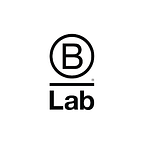Best for the World 2022: Impact Business Models in Action
How Four of This Year’s Honorees Are Centering Stakeholder Benefit in Their Work
If you spend some time perusing the company profiles of the 2022 Best for the World Certified B Corporations, you might notice one thing a lot of them have in common: an Impact Business Model.
As captured in the B Impact Assessment, this is a type of business model intentionally designed to create a specific positive outcome to business stakeholders. All B Corps make a commitment to stakeholder governance as part of meeting the legal requirement for certification. Some go beyond to center their business models on bringing specific benefit to one or more stakeholders — workers, community, environment, or customers.
What does having an Impact Business Model look like in practice? It might be based on business structure, such as worker-ownership. It might entail providing products or services that are beneficial to the community — like providing workforce training or using local supply chains — or to the environment, like remediating pollution. Here’s a look at how some of this year’s Best for the World honorees are putting their Impact Business Models to work in the service of their stakeholders.
La Laiterie du Berger — Based in Dakar, Senegal
- Best for the World 2022: Workers
- Impact Business Models for Workforce Development, Supply Chain Poverty Alleviation, Microdistribution Poverty Alleviation, National Economic Development
This dairy business opened its doors with the specific intent to work with farmers in Senegal, after the founder learned that 90% of milk consumed in the country was imported in powdered form — in spite of the fact that 4 million people living there have traditionally earned an income from dairy farming. La Laiterie du Berger’s processing facilities in Senegal’s northern region collects fresh milk twice daily directly from farmers living within 50 kilometers, providing a stable income through “(re)localization” of supply chains.
Learn more at their B Corp profile.
Make The Change — based in Singapore
- Best for the World 2022: Customers
- Impact Business Models for Community (Designed to Give, Local Economic Development) and Customers (Education, Economic Empowerment for the Underserved, Support for Underserved/Purpose Driven Enterprises, Impact Improvement, Serving in Need Populations)
As a social enterprise design agency, Make The Change works closely with stakeholders in its local communities in Singapore and Indonesia, including by providing workforce training in digital marketing and communications for people with disabilities. They subsequently connect participants to job and internship opportunities, including through their Younite initiative, a dedicated inclusive talent platform.
Learn more at their B Corp profile.
Oxfam Fairtrade — based in East Flanders, Belgium
- Best for the World 2022: Community
- Impact Business Models for Community (Supply Chain Poverty Alleviation) and Environment (Toxic Reduction/Remediation)
A distributor of fair trade food, drinks, and raw materials, Oxfam Fairtrade works directly with small-scale producer cooperatives to source its goods — going beyond to provide additional additional living income premiums in regions where it will be beneficial to producers, including in their work with cooperatives in the Republic of Côte d’Ivoire. Oxfam Fairtrade also prioritizes natural remediations of environmental harm and emissions driven as a consequence of their supply chains. This has included supporting tree-planting and irrigation projects driven by a honey cooperative in Piaui, Brazil, to maintain local bee colonies.
Learn more at their B Corp profile.
Kompost — based in Buenos Aires, Argentina
- Best for the World 2022: Environment
- Impact Business Models for Environment (Resource Conservation) and Community (Supply Chain Poverty Alleviation)
Kompost is driving forth the zero-waste movement in Argentina by creating products that address household waste from single-use plastics and table scraps. One core line of products provides tools and implements for composting — including bins, buckets, and gardening implements — while another is dedicated to reusable containers and other products for household use, including water bottles, bags, utensils, and toothbrushes. Their products have reduced the use of over 700,000 plastic bags.
Learn more at the B Corp profile.
This article was originally published at https://www.bcorporation.net. B The Change gathers and shares the voices from within the movement of people using business as a force for good and the community of Certified B Corporations. The opinions expressed do not necessarily reflect those of the nonprofit B Lab.
